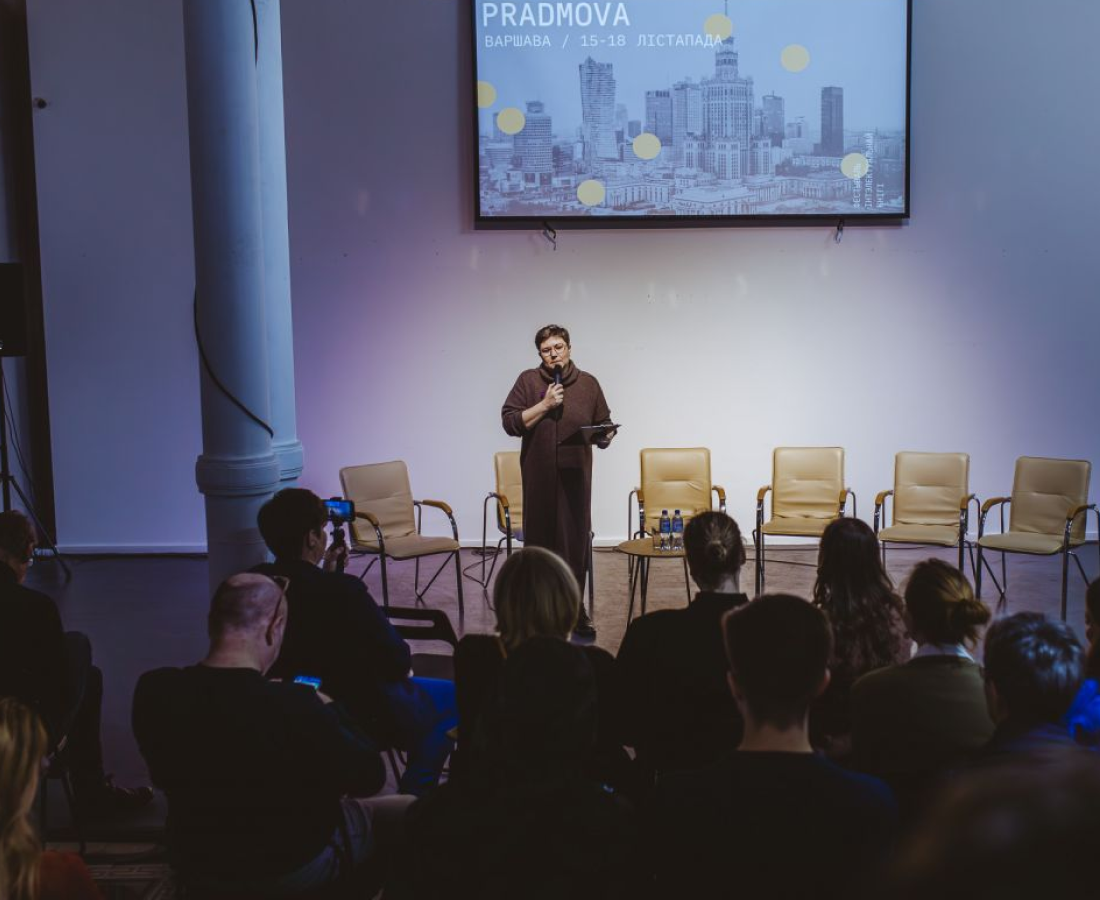
On November 15, the intellectual book festival “Pradmova” opened in Warsaw. Four days, four venues, and more than 50 events — book presentations, discussions, conversations, workshops, and theatrical performances.
The festival’s curator in Warsaw, Maryna Kazlouskaya, speaking at the opening of Pradmova in the Museum of Free Belarus, expressed her hope that “these four days will help Belarusians feel closer to one another.” The Belarusian channel Belsat attended the first discussion, titled “The Long Road from Bykau.”
“We’re starting here in Warsaw for the third time. Ahead of us are many meetings devoted to Belarusian books, poetry, theater, and music. There will also be a chance to purchase books from major Belarusian publishers. So, find some space in your small Polish apartments to place these books — so you can enjoy reading them through the long winter,”
advised Maryna Kazlouskaya at the festival’s opening.
The director of the Museum of Free Belarus, Natallia Zadziarkouskaya, reminded attendees that the museum has hosted Pradmova for the second year in a row, expressing her hope that this year’s festival “will become a true celebration of the book and of culture.”
The welcoming speech by one of the festival’s organizers, poet Andrei Khadanovich, was filled with hope for an “inevitable return.”
According to Khadanovich, the inevitability of returning to Belarus is reflected in the legacy of Natallia Arsennieva, who titled her final book “Between Shores.”
“Everything we do, we do with Belarus in mind and with the thought of returning. Another thing: this return may not happen tomorrow. But that gives us even less reason to give up, to panic, or to lose heart,”
said Andrei Khadanovich at the opening of Pradmova.
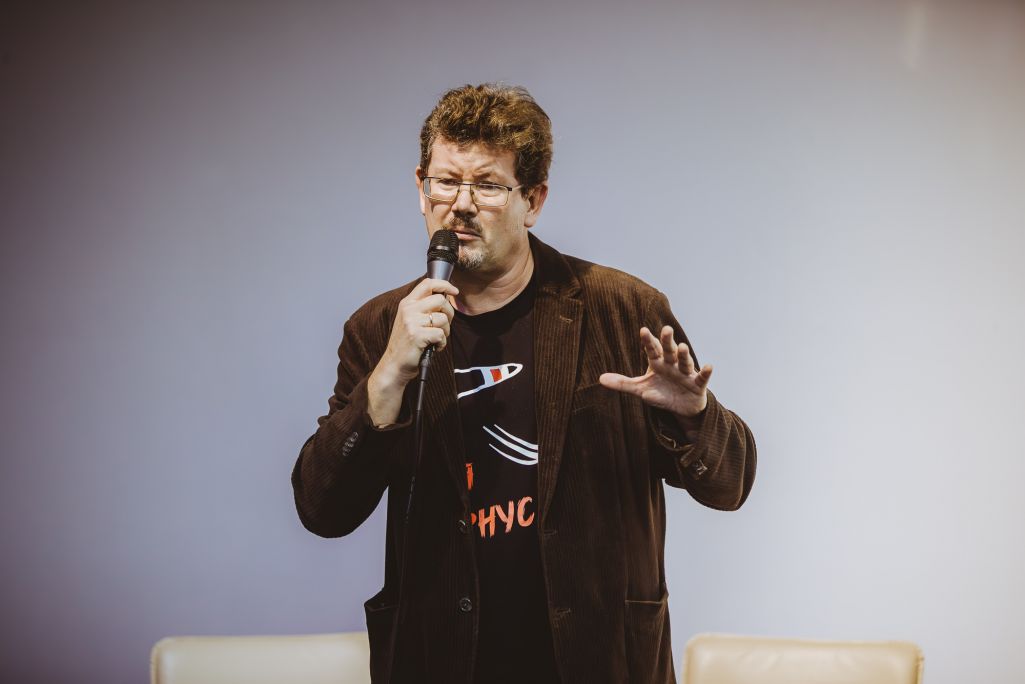
The poet called on everyone to “build the country, deed by deed,” — a country that, sooner or later, “will begin to repay us with reciprocity for our love toward it.”
“For me personally, the greatest joy of taking part in the festival is not even that every meeting succeeds, or that readers get to meet books. What delights me most is that Belarus meets Belarus at these gatherings. Especially when people wearing stickers that say ‘Do not photograph’ buy books. That means these books will inevitably make their way to readers in Belarus. And another thing: books published in Belarus reach readers in Berlin, Vilnius, and, of course, Warsaw. Let’s stitch together, connect, and unite these shores of Belarus!”
urged Andrei Khadanovich.
He concluded his speech with the words: “We won’t let the scoundrels divide us!”
The organizers of the festival also reminded the audience that Pradmova opens on the International Day of the Imprisoned Writer. According to Belarusian PEN, there are currently at least 38 people of letters and no fewer than 168 cultural figures behind bars in Belarus.
The first discussion of the festival, titled “The Long Road from Bykau,” featured writer Sviatlana Kurs (also known as Eva Vezhnavets), philologist and associate professor at the University of Warsaw Andrei Maskvin, and poet Andrei Khadanovich.
The participants reflected on the significance of Vasil Bykau’s personality — in the past and today — and on the opportunity to stop living in the world that Bykau once described. They discussed why we should read, remember, and reread Bykau — and what his legacy means for Belarus now.
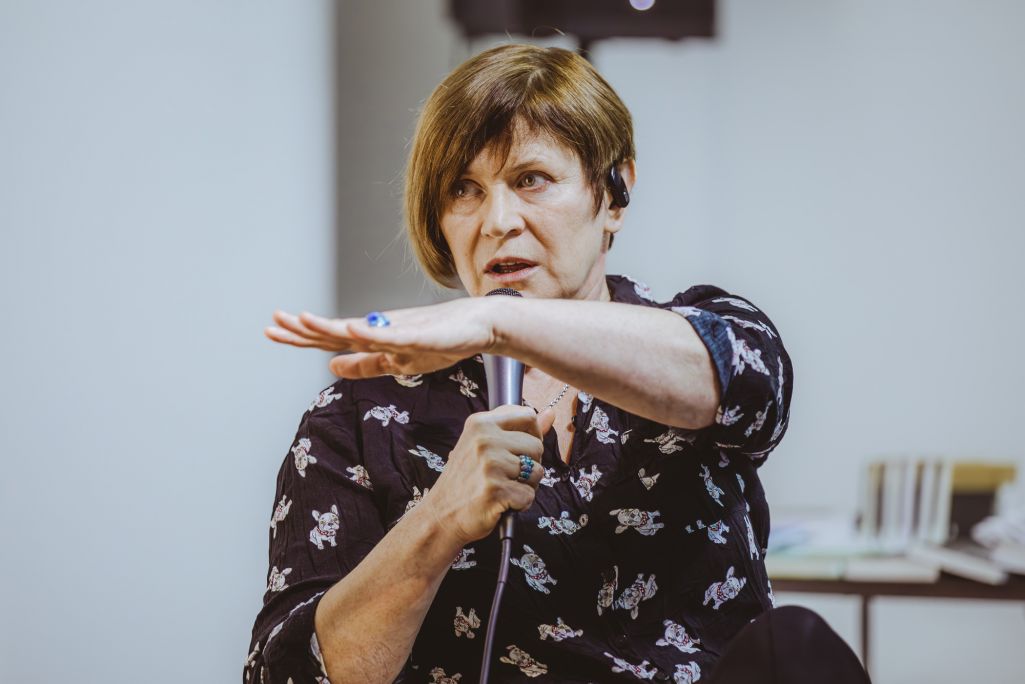
According to Sviatlana Kurs, Vasil Bykau is a mystery and “one of the essential archetypes of the Belarusian national character.” The writer recalled how, as a child, she once refused to write a dictation based on one of his works — and later read “The Third Rocket,” a story that “burned inside her for several years.”
“And I used to say to him: ‘Mr. Vasil, how could you turn out to be such a prophet? Why couldn’t you have foretold something bright?’ And at the same time, it was impossible not to love him… You see, he carried such poison within him — and yet you come to him, and you love him,”
shared Sviatlana Kurs.
“And now we can all open him up like a secret chest, like a Japanese puzzle box. You never know where to press for wonderful flowers or landscapes to appear. You could spend three thousand years opening such an imperial chest — and still not unlock it,”
concluded the author of the novel “What Are You After, Wolf?”
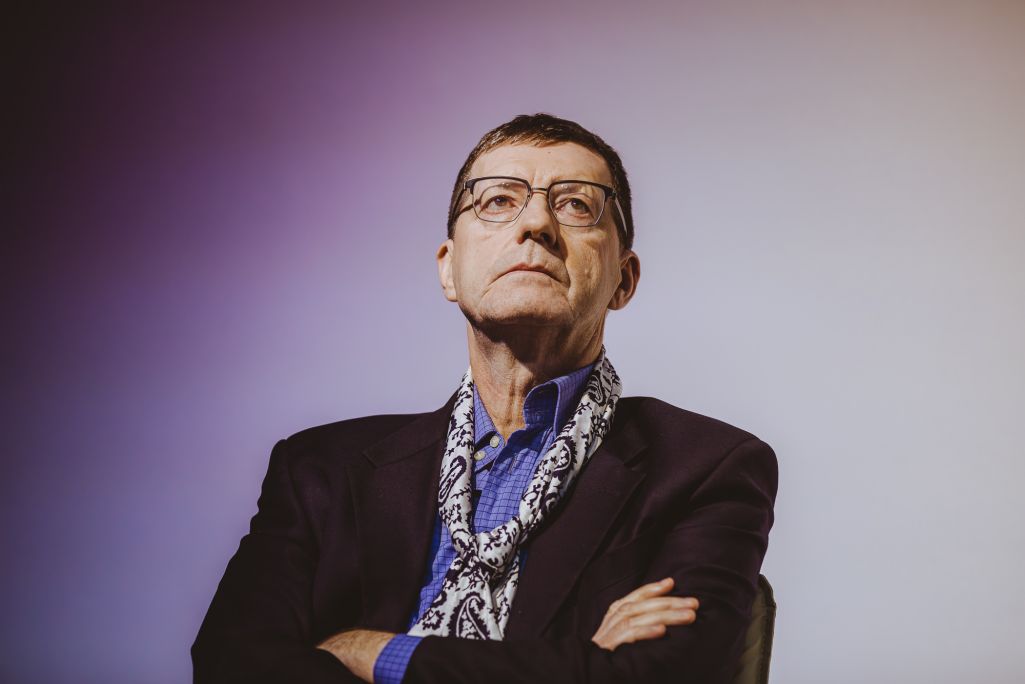
How is Bykau seen in a broader context — how do our neighbors, the Poles, perceive him? This question was posed by the discussion moderator, literary scholar Maryna Kazlouskaya, to Dr. Andrei Maskvin, Doctor of Philology.
“As for the Polish context — when I was writing my texts on Belarusian literature for my book, I carefully studied Bykau’s reception in Poland. I gathered all the criticism written after each of his novels was published in Polish translation. And the number of reviews truly impressed me… Another question, though, is whether Poles today are still returning to Bykau?”
replied Andrei Maskvin, answering a question with a question.
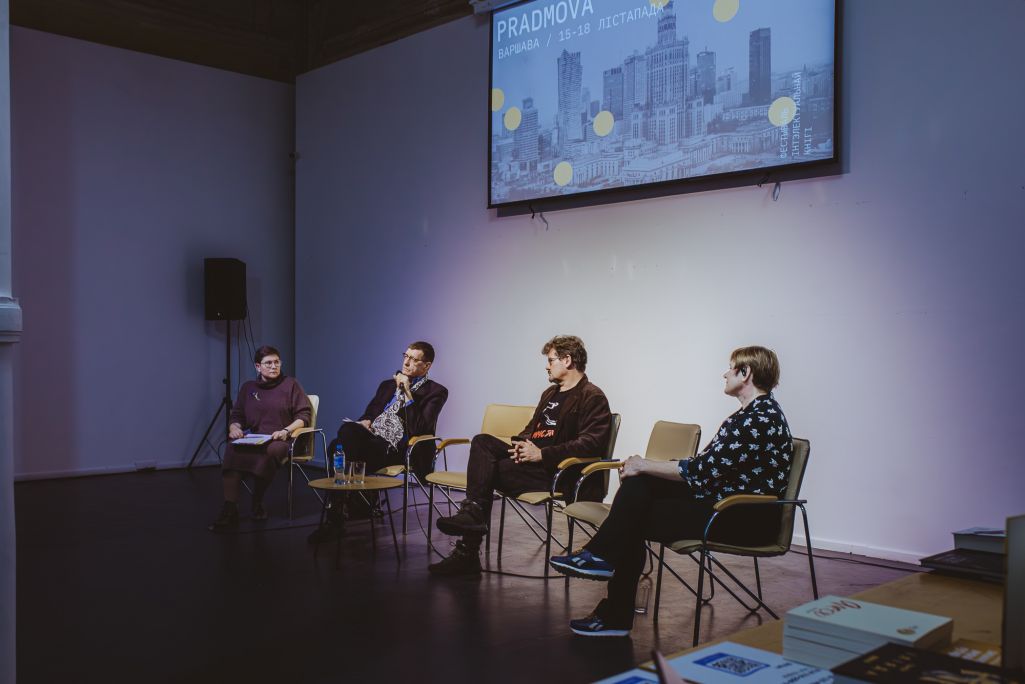
Andrei Maskvin is convinced that Vasil Bykau, like every writer, “exists within his own context.” He wrote during the 1960s–1980s, when veterans of the Second World War were still alive — and many of them admitted that at that time they could not read books about the war because there was so much falsehood in them. Bykau, however, was the one who wrote the truth about war.
“I find this very important… And it’s also important to remember that among the many writers who wrote about the war, Bykau has remained — and still remains. He exists. And without him, we wouldn’t be able to talk about war at all. Bykau represents the authentic war — about the living human being — it is a living war,”
stated Andrei Maskvin.
“Bykau creates a cosmos — that’s the level of his literature,” he added.
At the same time, the University of Warsaw lecturer admits that for his students, even though they like Bykau’s style, it is difficult to read “precisely about the horrors of war.” The situation in Ukraine, he believes, may influence this. According to Maskvin, “it is hard for modern youth to perceive such a dense reality.”
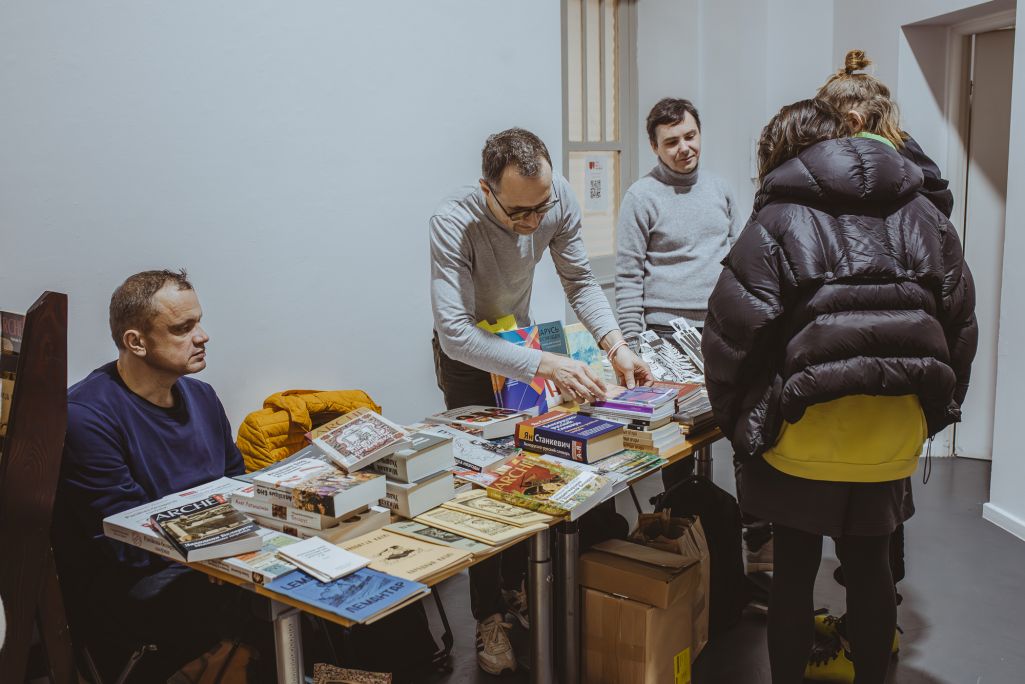
“Bykau didn’t just write about war — he was one of the strongest anti-war writers, though this was never said openly in Soviet times. Every page, every line of Bykau’s work speaks about ‘never again.’ About the very thing we used to laugh at in peaceful times when our grandmothers said, ‘As long as there’s no war.’ But how right those grandmothers were!”
argued Andrei Khadanovich.
According to Khadanovich, Bykau is “our bitter medicine,” one that helps us avoid confusing what we wish for with what truly is.
“Several times in the recent past, we have fallen into this trap. Yes, we are waiting for quite concrete changes. If Bykau were here with us, he would probably toss in a word: yes, they will inevitably happen — but will they be for the better?..”
reflected Khadanovich.
He added that Vasil Bykau had the courage “not to turn his eyes away from the most painful things.”
“It seems to me that in a world growing darker and more sober — the carnival of the ‘end of history’ is over! — Bykau may once again regain his relevance. And not only in Belarus, but beyond its borders as well,”
concluded Andrei Khadanovich.
On November 16, as part of the “Pradmova” Intellectual Book Festival in Warsaw, dozens of literary and cultural events will take place. Among them are:
Original article: belsat.eu